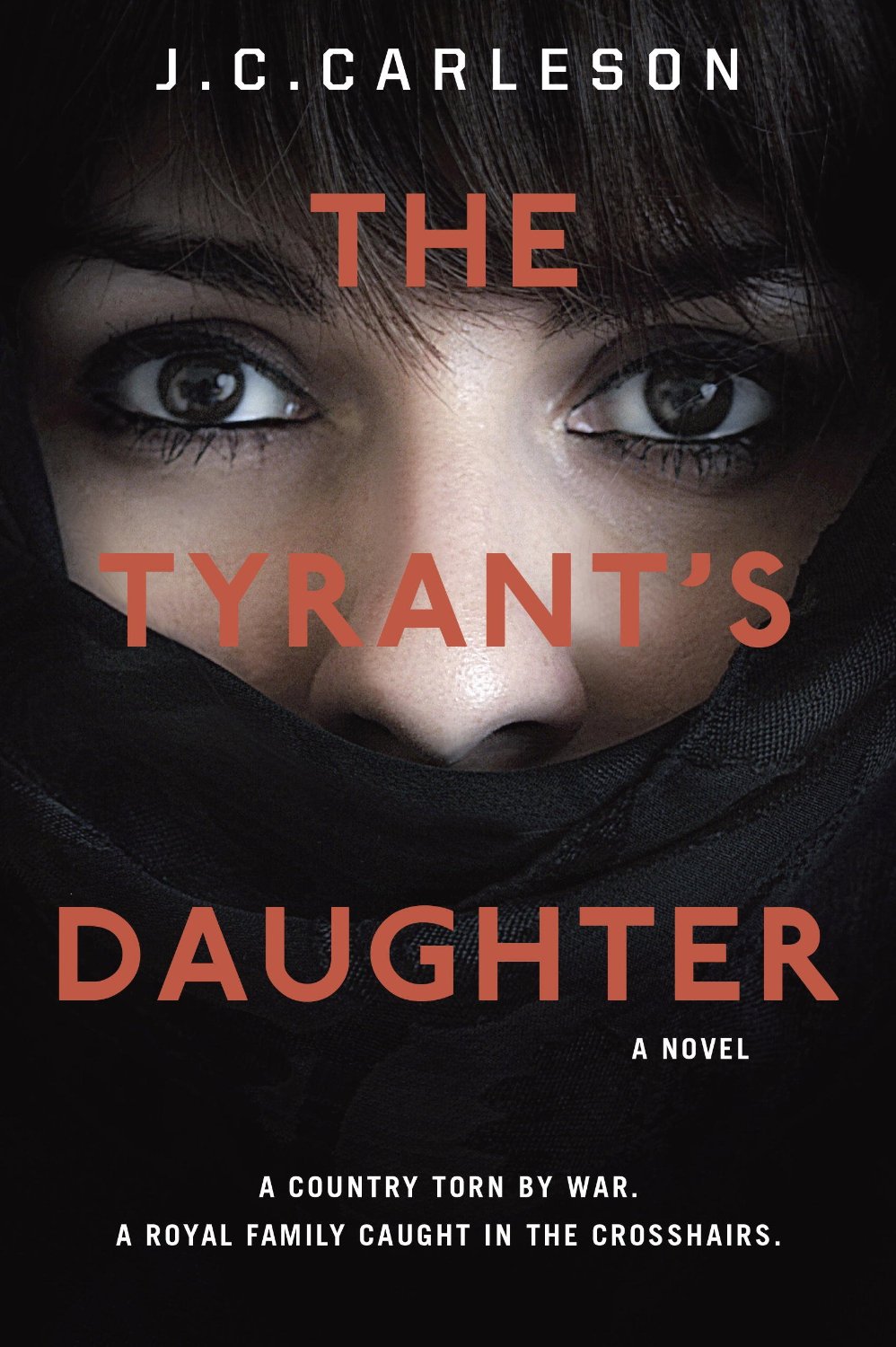14 May / The Tyrant’s Daughter by J.C. Carleson

 Laila, 15, is newly arrived from an unnamed Middle East country. She’s living in a modest apartment in the suburbs of Washington, DC, with her mother and younger brother. She’s at a new school with new friends, and she’s doing her best to adjust to her new life.
Laila, 15, is newly arrived from an unnamed Middle East country. She’s living in a modest apartment in the suburbs of Washington, DC, with her mother and younger brother. She’s at a new school with new friends, and she’s doing her best to adjust to her new life.
Think you recognize the narrative? Don’t be fooled: I promise that this is no typical immigration story.
Laila’s 6-year-old brother Bastien calls himself a king. He’s not wrong. The siblings are indeed royalty, the children of their country’s late ruler: to Laila and Bastien, he was”Daddy,” but Laila begins to learn that to the rest of the Western world, he was a brutal dictator whose assassination was not unwelcome news. Her mother is initially paralyzed by their exile, unable to navigate life without staff, wealth, and especially power.
While her mother mourns, Laila is quickly overcoming culture shock and learning how to be a typical American teenager. She makes a new friend, Emmy, and observes the not-so-subtle caste system of high school hierarchies. She dons what would have been scandalous attire at home and goes dancing with Emmy and her friends. She even begins to spend time alone with a boy, shares a first kiss and more.
Laila’s mother, meanwhile, has finally stopped playing the helpless victim, opening the door to strange new faces and whispered conversations. Never far is the disturbingly familiar American – the man who grabbed the family out of their home and delivered them to this suburb on the other side of the world. Laila knows plans are being made, that danger looms, that her mother is not a woman who will remain powerless for long. The family’s future is about to be determined by CIA agents, armed rebels, desperate refugees, and traitorous insiders – and even Laila will play her unwitting part.
J.C. Carleson writes what she knows: she spent almost a decade as an undercover CIA officer. Her “Author’s Note” at book’s end is as important as her novel, which provides illuminating context to how and why she created Laila’s story, from her shock over her young son’s casual request to increase the volume of his Nemo video in order to drown out the sound of gunfire, to her worries about an overdramatic plot that were repeatedly eclipsed by “the atrocities happening in the real world every day.” Carleson makes clear that Laila’s country is not “a thinly disguised version of any one particular place – Iraq or elsewhere.” She insists, “Ultimately, this book is pure fiction that is inspired by real events.”
As if to highlight related ‘real events,’ Carleson’s “Author’s Note” is followed by chilling “Truth in Fiction” commentary by Dr. Cheryl Benard, a researcher for the global think tank, RAND Corporation. Benard’s personal observations about the career and downfall of Benazir Bhutto – who was certainly a real-life tyrant’s daughter – is a resonating counterpoint to Carleson’s Daughter.
All three elements make for a powerful package deal, underscored in the audible version by three distinct voices: perfectly-cast Meera Simhan crisply narrates the novel, while Carleson and Benard add gravitas to their additional words. Whether you choose the page or stick in your ears, be assured, this is one atypical narrative not to be missed.
Readers: Young Adult, Adult
Published: 2014
